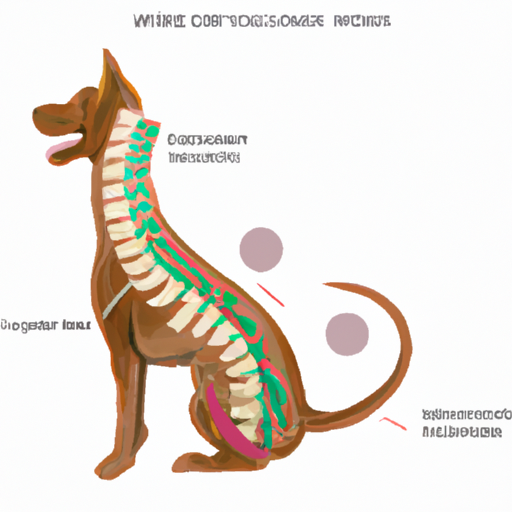Identifying IVDD
Intervertebral Disc Disease (IVDD) in dogs is a condition where the cushioning discs between the vertebrae of the spinal column either bulge or burst into the spinal cord space.
You might be wondering, “How does this affect my dog?” Well, these discs then press on the nerves running through the spinal cord causing pain, nerve damage, and even paralysis.
The Cause of IVDD in Dogs
Now, let’s dive into what causes IVDD in dogs. The cause is usually attributed to either one of two things:
- Wear and tear over time
- Some form of physical trauma like a fall or jump
Some breeds are more prone to IVDD due to their genetic makeup. Dachshunds, Beagles, Basset Hounds, and Shih Tzus are among the top breeds affected.
Recognizing the Symptoms
Just like you would look out for signs of discomfort in a loved one, it’s crucial to do the same for your furry friends. Symptoms of IVDD can vary in severity from mild to severe. They can include:
- Change in gait
- Difficulty rising
- Yelping in pain
- Reduced appetite
- Hunched back
If you notice any of these symptoms, it’s essential to get your dog to a vet as soon as possible.
Treatment Options
Now that we’ve discussed the causes and symptoms, let’s look at treatment options. The treatment for IVDD depends on the severity of the condition. Options may include:
- Conservative treatment: This includes rest, pain relief medication, and physical therapy.
- Surgery: In severe cases, surgery may be required to remove the disc material pressing on the nerves.
| Treatment Option | Description |
|---|---|
| Conservative treatment | Involves rest, pain relief medication, and physical therapy. |
| Surgery | Usually reserved for severe cases to remove the disc material pressing on the nerves. |
Prevention of IVDD
While IVDD can’t always be prevented, especially in genetically predisposed breeds, there are measures you can take to reduce the risk. These include:
- Regular exercise to keep your dog’s weight under control
- Avoiding high-impact activities like jumping
- Providing a diet rich in nutrients
Frequently Asked Questions
Q: Are certain dog breeds more prone to IVDD?
A: Yes, breeds such as Dachshunds, Beagles, Basset Hounds, and Shih Tzus are more susceptible to IVDD.
Q: Can IVDD be cured?
A: There’s no cure for IVDD, but with the right treatment, many dogs can live a comfortable life.
Q: Can I prevent my dog from getting IVDD?
A: While you can’t prevent IVDD entirely, especially in predisposed breeds, you can reduce the risk with regular exercise, a healthy diet, and avoiding high-impact activities.
Remember, you’re your dog’s best advocate. If you notice any signs of discomfort or change in behavior, it’s always best to consult with your vet.



